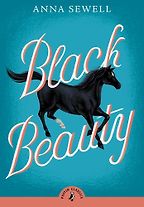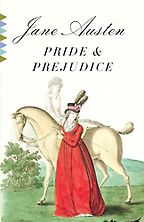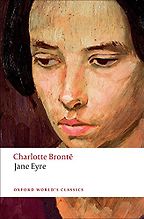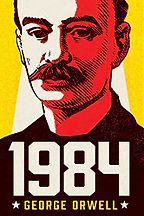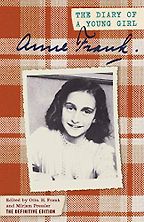Your first book is Black Beauty by Anna Sewell.
I find it odd that people don’t realise how revolutionary this book is. Lots of people recognise that Uncle Tom’s Cabin was an absolute turning point in getting people to acknowledge that black people were human beings like anyone else. Anna Sewell’s book came over 25 years later, and to me it is just as important.
It was the first book that gave consciousness and personality to an animal which is the horse, Black Beauty. It is narrated in the first person and is supposedly his autobiography. Black Beauty starts off life with a loving mother and great happiness and a good owner. Then he gets sold from one person to another and it is a terrible tragic story of the erosion of happiness and health, until finally, when broken-down and near death from ill-treatment, he is rescued.
So it is a story of paradise lost, and regained.
What was the reaction to the book at the time?
Well, it really dramatised the animal rights movement. People forget that William Wilberforce, who abolished the slave trade, also founded the RSPCA. The animal rights movement had been going for a generation, but it was Black Beauty that made the suffering of animals immediate and vivid as only imaginative literature can do. To this day there are several horses’ drinking fountains that were erected because the public were so horrified by the cruelty to animals. So it really was the novel that changed how people saw another species. It made us bigger as human beings because the old medieval idea that man was immeasurably distinct from and superior to beasts began to crumble.
Millions of children still read this book and I think it is important as a formative work of literature. Psychopaths always start off by being cruel to animals and then progress to humans, so if you learn that you should be kind to animals you are much more likely to be kind to humans.
Your next book is Pride and Prejudice by Jane Austen.
This book is one of the few perfect novels ever written. Its style and plot and characters are all in balance, with nothing superfluous. Because of this, I think it is easy to overlook quite how revolutionary Austen was when her heroine insisted on a woman’s right to marry for love. Georgian society was even more materialistic and money obsessed than our own, and in those days women were expected to choose prudently, like Elizabeth Bennet’s best friend Charlotte. No sooner does Elizabeth reject the repulsive Mr Collins than Charlotte snaps him up, even though she can’t love him.
It’s interesting to remember that Jane Austen turned down a proposal from a gentleman of serious means who wanted to marry her, because she couldn’t marry without love. Although it is true that Elizabeth did very well out of marrying for love when she finally married Mr Darcy, she is chastised by her mother for rejecting Mr Collins. That decision dramatised a turning point in women’s emancipation, because, before you can achieve other kinds of emancipation in the outside world, you have to be emancipated internally, and to see yourself as something worthy of love, and free. Marriage is still one of the most important choices people ever make, and Austen’s novel changes the world for at least half the population by dramatising its dilemmas. I know its themes are still very popular and much debated amongst the Asian girls.
It’s not just an enchanting story but something that makes people question their own values.
Moving on to another Jane, your next choice is Jane Eyre by Charlotte Bronte.
Of course, Charlotte Bronte loathed Jane Austen and thought she was far too genteel. This book was revolutionary because it insisted that not only could a heroine be small and poor and plain, but she could actually be worthy of respect because she had a mind, an intelligence that had been trained – and, unlike Austen’s heroines, she could do a job.
I remember finding that quite electrifying when I read it because even in my generation (people who are now in their early 50s or late 40s), it was still not automatic that a woman would have a job and a career. Jane’s boldness, her self-confidence and her resilience remain deeply inspirational.
Jane Eyre was also revolutionary in insisting that she be respected and that her moral values be accepted by someone of a higher social class. When he is exposed as a would-be bigamist, Mr Rochester offers her a life in Italy as his mistress. Although she is passionately in love with him, Jane rejects that because she feels it to be wrong and she wants to keep her flinty sense of what is right. Being the kind of fairy-tale it is, she finally wins. The very aunt who persecuted her for her stubbornness as a child leaves her a fortune.
The novel is all about learning to see things for what they truly are: again, this is one of the things great novels insist we do. You fall in love with Jane long before Mr Rochester does!
1984 by George Orwell.
This is the ultimate dystopia written by someone who wasn’t just one of the greatest of all journalists, but one of the most prescient. Orwell is of perennial fascination to me because, like Dickens, and a bit like me, he straddles the world of investigative journalism and fiction. He also deliberately chose to experience different levels of society, which I believe is essential for a novelist interested in the truth about the way we live now.
He wrote this book in 1948, when he was dying of tuberculosis, in a great burst of passionate determination, because he could see long before other people where totalitarianism and communism were heading. Animal Farm had told it as a kind of dark fairy-tale, but this was the culmination. The intellectual dishonesty of the Left, which refused to see how evil Stalin was, is despicable, and Orwell was brave enough to stand up to his friends as well as his enemies.
Orwell saw the death of the dream at first-hand in Spain. He was in contact with a lot of communists, and fought on their sides against Fascism but, as Stalin’s Russia gained power, he could see this dream of equality that so many idealistic and young people have shared leaves a nightmare, just like Fascism. Anything other than democracy and truth leaves the jackboot stamping eternally into the human face, as Winston realises.
His hero Winston, named, of course, after Winston Churchill, is betrayed even by the one person he thinks he can totally love and trust. He is broken forever by Big Brother, and the novel’s horrendous ending – with the rat and the face and the thing that he most fears breaking his spirit – is unforgettable.
1984 is a novel that changed the world by warning it of the consequences of bigger and bigger blocks of power, more and more lies, and citizens being spied on by authority.
Your last book is The Diary of Anne Frank.
I am half Jewish, and when I first read this book I was about ten and totally unaware of what had happened in the war. The Holocaust is something that even in the 1960s people were reluctant to talk about, especially in front of children. Like Jane Eyre, Anne is someone you fall in love with as a person. Her enthusiasm and her innocence and the blossoming of this tender, sensitive, inquisitive young woman in the most adverse of conditions speak to you so directly. As a consequence of reading her diary, I began to keep my own and have gone on keeping it every day ever since. I have also always had an interest in direct testimony and the importance of bearing witness.
There was the complete horror of not just the constant fear of discovery but also the claustrophobia and irritation of being locked up with a whole lot of people who have nothing in common with you. The people who shared the tiny hidden flat with the Franks were irritating and bigoted and smelly and boring, and yet, amidst all that, she managed to fall in love with the one other person who was there of her age.
It’s both inspirational and agonising. Here is a person who cannot possibly be blamed for anything that was going on and yet she suffers both in hiding and then afterwards when she was murdered after the diaries end.
I think it shows people our common humanity, and it reminds us as adults what it is to be young and passionate about life. We all hope we would try and be as noble as she is in adversity, to remember that there is something indomitable about the human spirit and youth.
Five Books aims to keep its book recommendations and interviews up to date. If you are the interviewee and would like to update your choice of books (or even just what you say about them) please email us at [email protected]
Five Books interviews are expensive to produce. If you've enjoyed this interview, please support us by donating a small amount.
